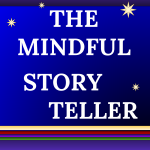
“First we are the apprentice, painstakingly learning the basics of our craft; then we become journeymen, trained apprentices who are able to travel from place to place practicing our craft; finally we become masters of our craft and are honored as repositories of skill.” – Caitlin Matthews, The Celtic Spirit, p. 73.
∞∞∞∞∞∞∞∞
In the year 1942, Ruth Sawyer stews over what can be accomplished with traditional storytelling in such modern times. She recalls an elderly upholsterer who visited her home in the 1920s to have some furniture recovered.
He told of his youth working in an upholstery guild of Europe in the mid-1800s. He said, “Money! We did not know what money was. We were sheltered; we were fed; we were taught. We lived only for our work – the rightness and beauty of it. We honored the guild, the master, and our patron saint. We knew if we were good, industrious boys we would be masters some day. Then it would be our turn to pass on to the apprentices the best of what we had learned, what we had invented for ourselves.” He laments that there is now neither pride nor honor in the work and that the young men want only “money – to earn and to spend.”
In a technocratic society that exalts speed, efficiency, money, and the latest technologies, elders are often seen as incompetent and superfluous, if not simply burdensome. One Tibetan teacher is blunt in his observation of Western culture, “In most areas, the grandparents’ wisdom is no longer needed, and they have no role to play. They end up in an old age home or a retirement community, and occasionally they come to visit their grandchildren and watch how nicely they play.”
Storytelling – and, even more so, Story Listening – represent radical acts of subversion. We do not have storytelling guilds with masters and apprentices like the European upholstery guild of the mid-1800s, but we do have elders and they do have stories. We can subversively choose to exalt slowness, inefficiency, and the old technology of a couple of mugs to hold our coffee or tea as we sit and listen and exchange stories with an elder.
∞∞∞∞∞∞∞∞
Is there an elder in your life that you’d like to spend some time with this month? (My 89-year-old mother still has her 97-year-old “big sister” – so your age may not preclude finding “an elder.”) Schedule a time to get together. Think of it as entering an old-time storytelling guild. The elder is the master. You are the apprentice. Appreciate their stories (even if you’ve heard them before). Note their tones of voice, their gestures (or lack of gesture), their facial expressions, their little nuances of speech. Appreciate their telling. Listen, enjoy, learn.
(Music: Courtesy of Adrian Von Ziegler, “Sacred Earth.” )